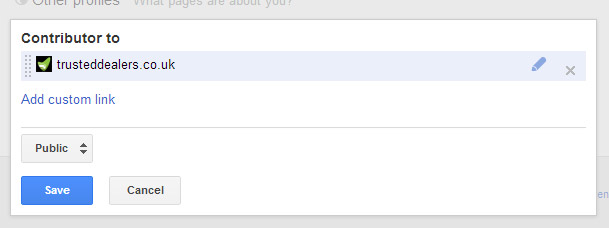In one of his regular broadcasts, Matt Cutts mused on the problems of ‘real world’ companies competing in the online space in response to a question posed by one of his viewers. It’s a problem as old as the commercial web – and something of a philosophical conundrum for Google and marketers alike: if a big, household name exists in a market, should it ‘naturally’ get traffic from Google, even if its online presence is poorly built, optimised and/or marketed?
Most obviously, this is reflected in the nature of what search marketers like to call ‘brand signal’. If a company receives hundreds of thousands of searches for its brand name then surely that site should do well for the products it sells, almost regardless of how well the site is built from a technical perspective?
I’ve seen this in effect myself in a previous role. The company we were doing work for had around 2 million searches for their brand name every month. The site itself was appallingly built – with duplicate content issues, constantly spiralling redirects and broken internal links and riddled with empty pagination and search filters. Despite that, we could rank the site for hugely competitive two and three word head phrases with a relatively small amount of spadework. The conclusion? Branding works in Google, with sufficient volume.
Tangled up in this is the whole, quasi-religious debate about exact match domains: if someone searches for ‘cheap car insurance’ are they looking for cheap car insurance, a company called cheap car insurance or cheapcarinsurance.com? The vagaries inherent in this line of thought lies behind a lot of zig-zagging debate and attendant strategising.
At the opposite end of the spectrum, you also have companies (such as my own) which don’t actually have any ‘real world’ presence but are online-only brands. One such brand that I am aware of is motors.co.uk – which is a used car listings site, owned in the past by the Daily Mail Group and currently under the auspices of Manheim – mainly of note to me as a bellweather for the industry as it has always been a huge online brand.
I am not privy to what promotional work Motors have been engaged in but I do know that they spent millions in the past on radio, local advertising, offline promotion and print work – as well as untold sums in content production and website development. For the past couple of weeks however, they have ceased to rank for their own brand name.

In SEO terms, this is a colossal slap. I don’t know what it is that Motors have ‘done’ in Google’s eyes to deserve this – most likely some ancient linkbuilding campaign has come back to bite them (a recurring problem I have alluded to here before in relation to our own site). Doubtless there is a huge disavowal exercise going on behind the scenes now to recover what they’ve lost. Hopefully for them they will extricate themselves from that particular hole.
This illustrates the flipside of the ‘big company with poor web presence’ paradigm, namely: ‘a company with nothing but a web presence’.
Assuming that this evident penalty has struck motors.co.uk across the board in relation to their SEO, I can only assume they’re suffering from a big drop in traffic and thus revenue. Luckily, they are backed by Manheim, so will have resources to weather the storm – but many companies aren’t so lucky. Such are the complications of Google’s algorithm (and the competing internal imperatives of Google as a business in and of itself) these days that I’m no longer sure that anyone can really claim to understand the market any more – regardless of the noise, fog and general sturm-und-drang of the SEO community. In the same market – and I will not name names – I know for absolute fact that some of the big players are spending £5-10,000 a month on aggressive link buying and haven’t (as yet) seen any penalisation.
The truth is that being wholly reliant on ‘natural’ search traffic is actually a dangerous place to be in. If your only focus is SEO I would strongly advise starting to siphon some of your revenues into other channels as a bulwark against potential penalisation – either in terms of building up a ‘fighting fund’ for a rainy day, or spend on social/offline channels to build up “brand traffic” as best you can.
None of these options is cheap.
Any way you look at it, the days when you could truly view the web as ‘a level playing field’ seem laughably distant today.











